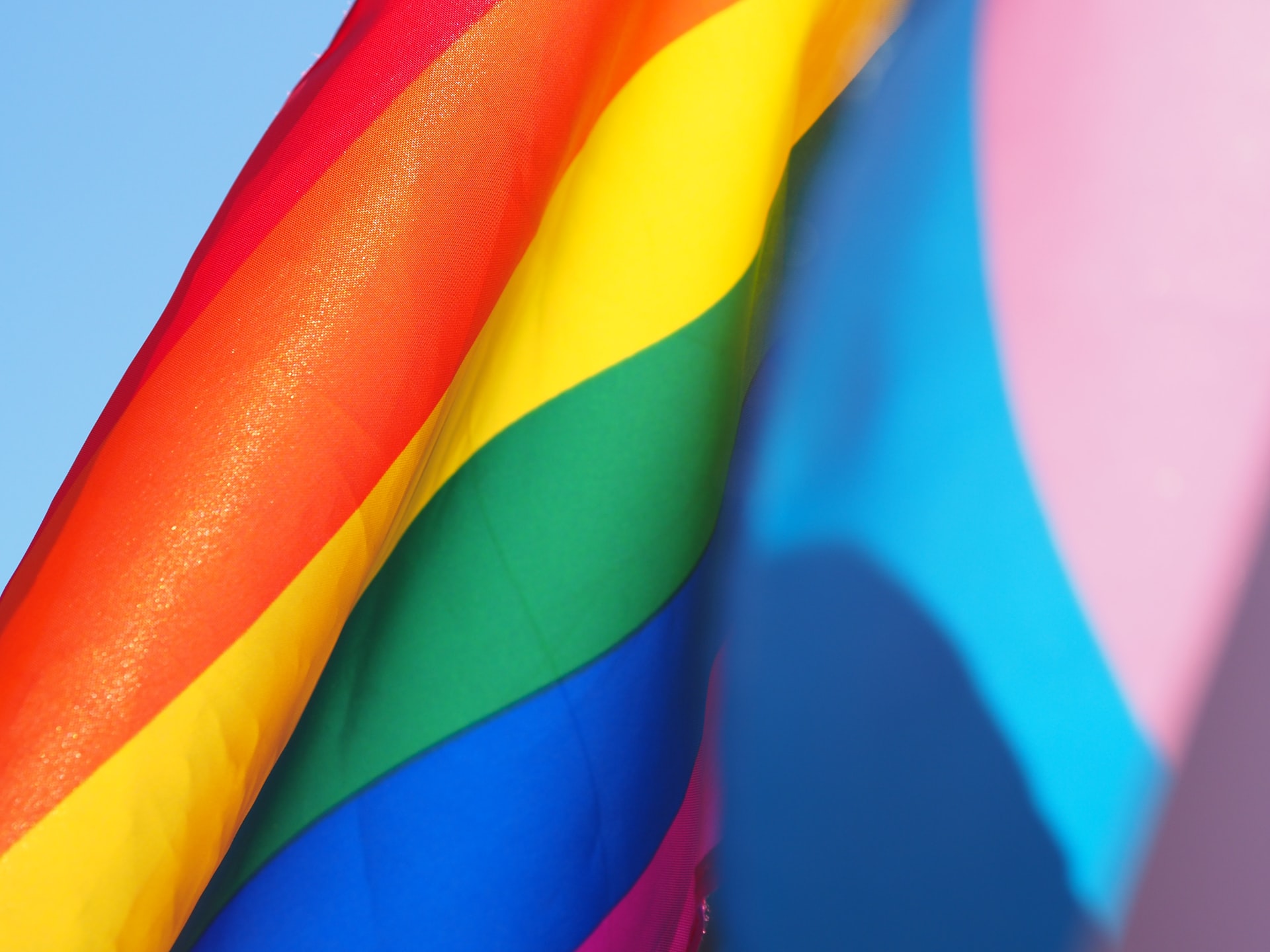After posting a YouTube video in which he interviewed an Indonesia-born man and his German husband (May 10), a celebrity and podcaster Dedy Corbuzier was blasted with online protest. With a hyperbolic title, “TUTORIAL JADI G4Y DI INDO” (Tutorial on How to Become Gay in Indonesia), the episode seemed to be a ploy to trigger some reaction. Well, it did get some reaction, though he must have found it overwhelming as he removed the episode and made a public apology later on.
The Coordinating Minister for Political, Legal, and Security Affairs, Mahfud MD, stated on the same day that the government didn’t have the right to remove Dedy’s video. He confirmed Dedy’s right to create the video since there were no legal violations found in this scenario. He saw the topic of sexuality and gender identity as a matter of “personal perspectives and choices”. The Minister of Communication and Information Technology, Johny G. Plate, said that the ministry couldn’t take down any video content unless it broke the law. Many conservative clerics across the country condemned Dedy.
Sure, it’s very convenient to generalize and to follow the usual “Muslim countries are bad” trope, but Indonesia’s stance on LGBT issues cannot be described as simply black and white. Just like in other countries, there are some people who reject this group and some who welcome them.
Western media often paints Indonesia as a conservative country that rejects LGBT people. The truth is Indonesia has never formally banned LGBT people from it soil and has had anti-LGBT bill overturned several times in the past. Unlike Singapore and Malaysia, Indonesia doesn’t have a sodomy law, or any law that bans male-to-male sexual relationships. Sex remains a private matter in Indonesia, no matter what one’s sexual orientation is. Of course, Aceh (Nanggroe Aceh Darussalam) is an exception, given its special right to enforce Sharia laws in its province.
Using one regional law to justify calling the entire country “anti-LGBT” is careless and unfair. Indonesia comprises thousands of islands, each having its own native culture and traditions. It may confuse some to see Aceh (a region with Sharia law), the “Westernized” Jakarta, and Bali (a region known for its suckling pigs and Bintang beer) exist in one “Muslim” country. But diversity is the fabric of Indonesian society.
There should be no confusion as to why LGBT is banned in Aceh and welcome in Bali. It has to do with the country’s diverse cultures and ideologies. Also, people fight differently. Just because they don’t take it to the street and scream through a megaphone doesn’t mean they do nothing.
The anti-LGBT bill wouldn’t have been overturned if there had been no support. And this was a big achievement, although the foreign media would prefer to ignore it and stick to the usual framing.
Different views, different cultures
 Sure, there are those who are strongly anti-LGBT and they’re usually the loudest. There are some local authorities that harass LGBT people, too. However, most people are practical. They care more about what one can contribute to society.
Sure, there are those who are strongly anti-LGBT and they’re usually the loudest. There are some local authorities that harass LGBT people, too. However, most people are practical. They care more about what one can contribute to society.
That is why transgender entertainers are thriving in Indonesia, receiving paid sponsorships from make-up companies, clothing stores, etc. Compare that to a Malaysian trans influencer and entrepreneur, who had to seek refuge in Australia because her government wanted to put her in jail.
Two years ago, Dedy Corbuzier invited a trans woman influencer for an interview. He posted two videos on his YouTube channel. At the time of writing, both videos (each has gotten 3 and 7 million views) are still up and running. One may ask, why does she get different treatment?
First, people love her because she’s smart, well-spoken, and accomplished — she won the 2021’s Miss Queen Indonesia (a trans woman beauty contest). Second, public displays of affection are a big no-no here, no matter what one’s sexual orientation is, and she never made that mistake. Essentially, she’s aware of Indonesia’s customs and plays by the rules.
There’s also a cultural explanation for this…
In Indonesia, transgender people are often viewed as great entertainers with natural artistic talents. This way of thinking can be traced back to the ancient Javanese era, where cross-dressing men would dance at social events. Cross-dressing is common in Javanese traditional art settings. It doesn’t necessarily mean the cross-dresser wants to change their gender, though sometimes the performers may use the occasion to express their true selves. There are also three genders known in Javanese culture: man (lanang), woman (wadon), and neither-man-nor-woman (wandu).
Dorce Gamalama, a well-beloved Indonesian trans celebrity, had her gender confirmation surgery in the country and was legally recognized as a woman in 1986. This was a brave decision as Dorce belonged to the Melayu ethnic group, which tended to be more conservative. Yet she thrived in the country, through her singing and acting career. She was legally married, though the marriage later ended up in a divorce. She adopted many orphaned kids and raised them like her own. Her adoring fans would later call her “Mother” for her compassion. She passed away in March this year, with many of her fans mourning her passing.
Changing one’s gender is allowed in Indonesia. The law doesn’t conflate gender as biological sex. Gender is what people see outwardly, hence those who want to have their gender legally changed must have had full, transformative surgery. Those who haven’t done it would have to keep their birth name and gender on their ID cards/passports.
What about homosexuality?
In 2016, former Vice President Jusuf Kalla stated that LGBT people have the same rights as other citizens. He even said — without naming names — that one of Indonesia’s former ministers was LGBT.
This might sound controversial, given it was said by a hadji and a high-ranking official. But Kalla is of Bugis descent, and Bugis people recognize five genders. He may have had a more positive view on LGBT issues because of his cultural background.
He implied that the former minister was gay and that his sexual orientation was widely known at the time.
Before the LGBT abbreviation reached the country, Indonesia had always seen transgender issues and homosexuality as separate. This clumping them into one group, “LGBT”, has caused a lot of confusion. Some people may have been tolerant toward one but disagreed with the other. Now they have given up their support because both being under the same umbrella made it impossible to support one and not the other.
While Western countries may have been more familiar with homosexuality than transgender people, it’s the other way around in Indonesia. Homosexuality is relatively new to the society and the way people came to know about it was not ideal.
The first time the wider public became aware of a male-to-male sexual relationship was decades ago, when foreign artists came to Bali and bribed underaged boys to give them sexual favors. People started to think that a same-sex sexual drive would lead people toward abusive behaviors. Sure, this was a misguided notion, but the shocking revelation would still affect people’s opinions years later.
And since cultural references about homosexuality are rare, people look into religious teachings. Conservatives would cite the story of Prophet Luth (Biblical name: Lot) and his people. how God had to blast them because of their sins. Believers don’t want to be punished so they fight for what they believe to be right.
Unlike transgender people, gay people are at a disadvantage because they don’t have any cultural protection that could shield them from hate. Besides, transgender people have shown how society can benefit from their presence. On the other hand, it’s tricky for gay people to do so. They can’t comfortably come out, so showing off what gay people can do seems a bit like an impossible task. That one mystery minister is just one example — but not enough to convince the public.
Pedophilic tourists coming to Bali are “good” news for the conservatives, though. They’ve been using this to resurrect the old perception of the same-sex sexual drive — that it’s bad for society and should be banned.
Silver linings
Rumors circulate that certain celebrities are gay. Instead of turning their backs, their fans stay by their side and support them. This is a good sign that change is coming. It may be small, but it’s a change nonetheless.
Those celebrities have proven their talent through their work, have good manners, and have been generous to the unfortunate. If the rumors end up true and they decide to come out one day, it would be a big day for all the gay people in the country. People will finally realize that gay people can be good and accomplished, too.
A few weeks ago, Mahfud MD came under fire after he suggested LGBT issues should be included in the criminal code (KUHP). People thought he had had a change of mind but his proposition would actually work in the group’s favor. He mentioned that if LGBT people committed serious sexual offences, such as rape, pedophilia or incest, they could be arrested. These laws are gender neutral, so Mahfud only reiterated rules that already existed. Punishing someone for their looks or individual identities would betray the first principle of the criminal code, i.e. “equal treatment for everyone before the law” without discrimination.
Given how diverse the political, religious, and cultural landscapes of the country are, Indonesia’s stance on LGBT issues will remain divided for some time. In terms of homosexuality, it’s a relatively new concept so it may take some time for people to understand. And support at the political and legal level has more impact than weets or online chatters.
To have a balanced perspective, people should see the issues from Indonesia’s cultural background instead of biased cultural perspectives. Most people in the country prefer to avoid talking about debate-triggering topics but wouldn’t mind supporting those who bring positive contributions to society. This might be a strange concept in countries where having an opinion is a must.
Finally, one should not harshly judge others by their own standards. It shouldn’t matter how slowly a nation solves a problem because each country has their own unique challenges and resources. What works in one country may not work in others.
Indonesia has thousands of ethnic groups living on thousands of islands spread across the archipelago. Accommodating the opinions of this many people is no simple task. Change will take time, but it is happening, though it’s slow-moving.
Images: Cecilie Johnsen and Katie Rainbow

